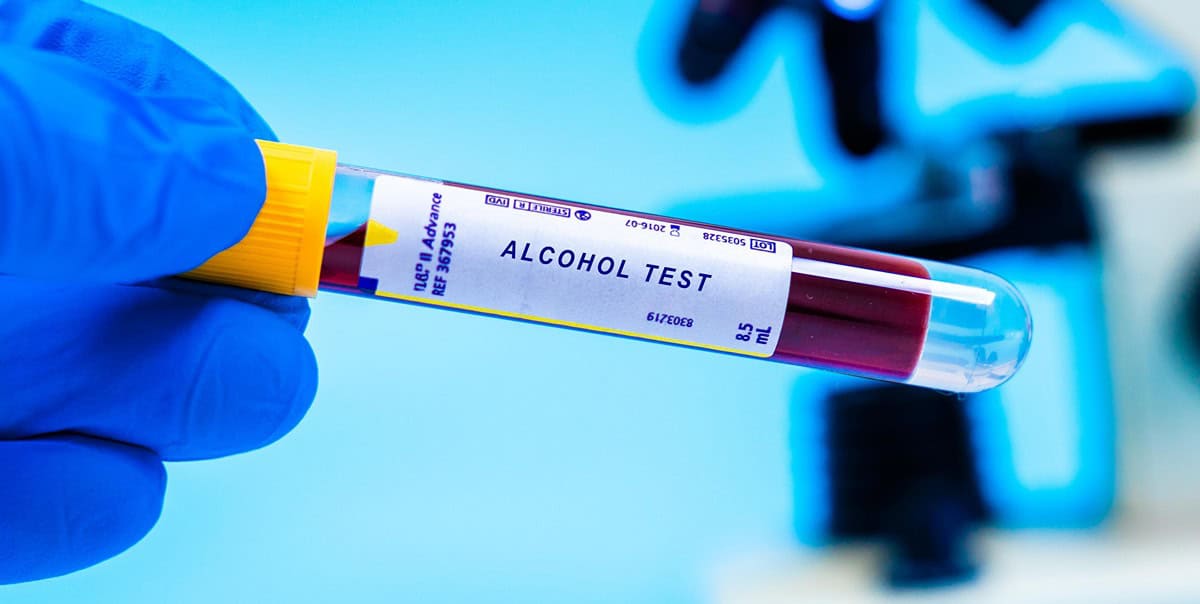Every year, the Cinco de Mayo holiday weekend brings celebrations and festivities to the streets of Phoenix, AZ. However, along with the parties comes a heightened risk of DUI arrests as law enforcement agencies increase their patrol efforts.
Cinco de Mayo is one of the busiest times for DUI checkpoints and arrests in the Valley, with police officers cracking down on impaired drivers on the roads and outside of popular bars and restaurants.
If you or a loved one find yourselves in a situation involving a DUI arrest during the Cinco de Mayo holiday weekend, please contact Arja Shah Law for a free consultation. Our experienced team specializes in defending individuals against DUI charges and can provide the guidance and support you need.
This article will cover the following topics:
- Cinco De Mayo DUI Stats
- Everything You Should Know about DUI Checkpoints
- DUI Penalties
- DUI Defenses
- Contact a Criminal Defense Attorney

Cinco De Mayo DUI Stats
Nationwide, DUI arrests spike by 25% to 30% during Cinco de Mayo, and drunk driving is responsible for about 40% of all traffic fatalities during this period, according to the National Highway Traffic Safety Administration (NHTSA).
In Arizona, particularly in Maricopa County, over 500 DUI arrests can be reported over the Cinco de Mayo weekend.
With a considerable number being classified as extreme DUIs (BAC of 0.15% or higher). The demographic most at risk are males aged 21 to 35, who constitute the majority of these arrests.

Everything You Should Know about DUI Checkpoints
DUI checkpoints, also known as sobriety checkpoints, are a common sight during holidays like Cinco de Mayo, when celebrations often lead to increased alcohol consumption. These checkpoints are a tool used by law enforcement to prevent drunk driving and maintain road safety.
Legal Foundation and Operation of DUI Checkpoints
- Authorization: DUI checkpoints are authorized by both state and federal law, including the Supreme Court ruling in Michigan Dept. of State Police v. Sitz (1990), which deemed them constitutional under federal law, and similar endorsements by state laws.
- Purpose: The primary goal is to deter drunk driving by systematically stopping vehicles to check for signs of alcohol or drug impairment.
- Location and Timing: Checkpoints are typically placed in locations that have a history of DUI incidents and during times when impaired driving is more likely, such as holidays or weekends.
What to Expect at a DUI Checkpoint
- Brief Stop and Check: Drivers are stopped briefly. If there is no reason to suspect intoxication, drivers are quickly allowed to continue.
- Signs of Intoxication: If an officer suspects a driver is under the influence, they may conduct field sobriety tests or use breathalyzers.
- Vehicle Inspection: Occasionally, officers might also check for compliance with other road safety laws, including vehicle registration, functioning headlights, and seat belt usage.
Your Rights at a DUI Checkpoint
- Right to Remain Silent: You are not required to answer questions about your consumption of alcohol or drugs, although police can use your refusal as a factor in determining suspicion.
- Refusal to Perform Sobriety Tests: In Arizona, sobriety tests are voluntary, and you are legally allowed to refuse them without penalties. However, this does not apply to chemical tests required by implied consent laws once an arrest is made.
- Detainment and Search Laws: Officers need probable cause to search your vehicle or detain you for further testing. Simply being stopped at a checkpoint does not provide probable cause.
Tips for Handling DUI Checkpoints
- Stay Calm and Polite: Always address officers respectfully and follow basic instructions.
- Document the Interaction: If possible, record the checkpoint encounter on your phone or a dashboard camera legally.
- Plan Ahead: If you plan to drink, choose a designated driver, use public transportation, or ride-sharing services to avoid driving while impaired.
Consequences of Refusal
- Immediate License Suspension: Arizona’s implied consent law means that refusal to submit to a BAC test post-arrest can result in immediate license suspension and other penalties.
- Evidence in Court: Refusal to take a breathalyzer can be used as evidence in court under the presumption that you refused the test because you knew you would fail it.
Understanding DUI checkpoints and your rights can significantly impact how you handle these situations, potentially saving you from hefty fines, legal troubles, or more serious consequences. Always remember that the safest way to avoid DUI charges is to not drive under the influence of alcohol or drugs. If you do find yourself at a checkpoint, being informed is your best defense.
DUI Penalties
In Arizona, the consequences of a DUI conviction are severe and are designed to deter drunk driving effectively.
The penalties vary based on several factors, including the driver’s blood alcohol concentration (BAC) at the time of arrest, prior DUI convictions, and whether any aggravating factors were present, such as having a minor in the vehicle.
Basic Structure of DUI Penalties in Arizona
➤Standard DUI: This charge applies when the driver’s BAC is between 0.08% and 0.149%.
➤Extreme DUI: A charge for drivers whose BAC is between 0.15% and 0.199%.
➤Super Extreme DUI: Applies to drivers with a BAC of 0.20% or higher.
Each category has specific penalties, with severity increasing with higher BAC levels.
Penalties for a First-Time DUI Offense
- Standard DUI:
- Jail time: Minimum of 10 consecutive days.
- Fines and costs: Approximately $1,250 plus additional costs for jail incarceration.
- License suspension: 90 days.
- Ignition interlock device required for 12 months.
- Extreme DUI:
- Jail time: Minimum of 30 consecutive days.
- Fines and costs: Minimum of $2,500.
- License suspension: At least 90 days.
- Ignition interlock device required for 12 months.
- Super Extreme DUI:
- Jail time: Minimum of 45 consecutive days.
- Fines and costs: Minimum of $3,250.
- License suspension: At least 90 days.
- Ignition interlock device required for 18 months.
Penalties for Repeat DUI Offenders
For individuals with prior DUI convictions, the penalties increase significantly:
- Standard DUI:
- Jail time: At least 90 days.
- Fines: Substantially higher than for a first offense.
- License suspension: One year.
- Ignition interlock device required for 12 months.
- Extreme DUI:
- Jail time: At least 120 days.
- Fines: Increase accordingly.
- License suspension: One year.
- Ignition interlock device required for 12 months.
- Super Extreme DUI:
- Jail time: At least 180 days.
- Fines: Higher than other categories.
- License suspension: One year.
- Ignition interlock device required for 24 months.
Additional Consequences
- Community Service: Often mandated as part of the sentencing.
- Alcohol Education Programs: DUI offenders are typically required to attend and complete an alcohol education or treatment program.
- Criminal Record: A DUI conviction goes on the individual’s criminal record, which can impact employment opportunities, professional licenses, and travel options.
Aggravating Factors That Increase Penalties
- Driving with a minor in the vehicle: This can elevate a DUI to an Aggravated DUI.
- Causing an accident that results in serious injury or death: Leads to significantly higher penalties.
- Having a suspended, revoked, or no valid driver’s license at the time of the DUI: Also leads to more severe consequences.
If you find yourself facing DUI charges, it is important to consult with an experienced criminal defense attorney who can guide you through the process and help mitigate the consequences wherever possible.
DUI Defenses
Facing a DUI charge in Arizona can be a daunting experience, but there are numerous defenses that a skilled criminal defense attorney can employ to challenge the charges.
These defenses can address the circumstances of the stop, the arrest, the evidence gathered, and the procedures followed by law enforcement.
①Challenging the Legality of the DUI Stop
A foundational defense often used in DUI cases is questioning the legality of the vehicle stop. Law enforcement officers must have a reasonable suspicion of a violation to stop a vehicle. If this suspicion cannot be adequately justified, any evidence gathered during the stop might be deemed inadmissible.
Furthermore, even if the stop is deemed legal, the officer must have probable cause to make a DUI arrest. This includes observing signs of impairment such as slurred speech, the smell of alcohol, or failed field sobriety tests. Without clear evidence of impairment, the arrest may be challenged.
②Issues with Field Sobriety Tests (FSTs)
Field Sobriety Tests are not infallible. Conditions such as uneven road surfaces, medical conditions affecting balance, or improper instructions from the officer can all impact the results of these tests. If the tests were not conducted according to the standardized procedures, their reliability could be contested. Defense attorneys will scrutinize the method of administration to ensure that standard operating procedures were followed.
③Breathalyzer and Blood Test Defenses
Breathalyzer machines require regular calibration and maintenance to function correctly. If the device used was not properly maintained or calibrated, the results could be inaccurate. Similarly, blood tests, though generally more accurate, are not immune to issues such as contamination, improper handling, or degradation of the sample. A defense attorney might question the chain of custody or the storage and processing of the blood samples.
④Constitutional Violations
If an officer fails to read a suspect their Miranda rights at the appropriate time during the arrest process, any self-incriminating evidence obtained after the point of violation might be excluded from the case. Additionally, under Arizona law, DUI suspects have the right to consult with an attorney once arrested. Denying this right can affect the admissibility of evidence and the outcome of the case.
⑤Other Strategic Defenses
Certain medical conditions can mimic signs of alcohol impairment or may affect the accuracy of breathalyzer tests, such as diabetes or gastroesophageal reflux disease (GERD). Another argument is the rising blood alcohol concentration, which contends that while the defendant’s BAC was above the legal limit at the time of testing, it was below the limit while driving. This could be due to alcohol consumed just before driving had not fully absorbed into the bloodstream.
⑥Utilizing Expert Testimony
Defense teams often employ forensic toxicologists or other expert witnesses to provide testimony on the reliability of blood alcohol testing equipment, the possible effects of medical conditions, and the interpretation of blood alcohol content results.
An adept DUI defense attorney can evaluate the specifics of your DUI charge and determine which defenses are most applicable and likely to succeed given the circumstances of your case.
Contact a Criminal Defense Attorney

Arja Shah expert DUI defense attorney will help you understand your rights, the legal processes involved, and can offer defenses that might significantly reduce penalties or potentially dismiss the case. Shah will also handle all negotiations with the courts and strive to secure the best possible outcome for your situation, allowing you to focus on moving forward.
For detailed assistance, visit Arja Shah Law or contact her office directly at (602) 560-7408.











